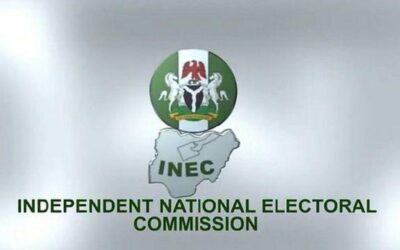Twitter Suspension: Confrontation Rises to its Crescendo
It was on 4 June 2021 when news filtered in that the Federal Government had indefinitely suspended the operations of Twitter, a popular microblogging and social networking platform in Nigeria that is home to an estimated 18 million active users.
In a statement through the Ministry of Information and Culture, the Federal Government cited the use of the platform for activities capable of undermining Nigeria’s corporate existence. It added that the Federal Government had directed the National Broadcasting Commission (NBC) to immediately commence the process of licensing all OTT (Over The Top) and social media operations in the country.
In a follow-up directive, the Federal Government ordered all telecommunications operators in the country to deactivate Twitter’s activities and operations on their network by 12 mid-night to prevent access to the site or usage within Nigeria.
The directive was promptly effected as efforts to refresh the Twitter application after midnight of 4 June 2021 was unsuccessful.
While efforts to regulate the media is not totally new in the country as seen in cases of fines and withdrawal of licenses carried out by the NBC against traditional media platforms such as TV stations, radio stations, and newspaper agencies that go against certain rules and regulations, the decision to suspend the activity and operation of Twitter was unprecedented.
Read Also: Twitter in Ghana: And So What?
When the decision was announced, ironically through the Federal Ministry of Information and Culture’s official verified twitter handle (@FMIC), it created substantial frenzy on the social media space with mixed reactions.
Some were critical of the implications of such actions: the muzzling of free speech and a direct contravention of the freedom of information law.
Others also posited that the suspension is a justification of their stand that the Buhari administration is an autocratic one with utter disregard for the tenets of true democracy.
A good number of people, nonetheless, supported the decision, insisting that the platform had been hijacked by propagators of fake news, incendiary individuals, and hate mongers.
The suspension, unprecedented as it appeared, was not a complete surprise to keen observers who have been following events over the past couple of months. The opposing stance of the Federal Government against social media (Twitter in particular) was made openly manifest during the EndSARS protests. The government was enraged at the role Twitter played in galvanising and coordinating the campaign culminating in the infamous Lekki Toll Gate protest that were marred, allegedly with cases of brute force and usage of arms against protesters in Lagos. Most of these reports were ferried through social media means.
The last straw that broke the camel’s back was the President‘s tweets which was a compilation of the official presidential statement he gave after receiving briefings from the Chairman of the Independent National Electoral Commission (INEC) about the constant destruction of the commission’s facilities and offices in some parts of the country. A part of the statement which was captured in a tweet read:
“Many of those misbehaving today are too young to be aware of the destruction and loss of lives that occurred during the Nigerian Civil War. Those of us in the fields for 30 months, who went through the war, will treat them in the language they understand.”
The tweet met with widespread condemnation and criticism on Twitter, with millions of Nigerians calling on Twitter regulators to flag the tweet as genocidal; and subsequently suspend the account of the President (@MBuhari). The petition garnered enough response that it prompted Twitter to take down the tweet of the President, insisting that it violated the platform’s rules.
The Federal Government promptly responded to the deletion of the President’s tweet through the Minister of Information by saying that the mission of Twitter in Nigeria is “very suspect”. Lai Mohammed went on to accuse Twitter of double standards wondering why the platform conveniently ignores the inciting tweets by secessionists, especially leader of IPOB (Independent People of Biafra) and his cohorts. He also accused Twitter of bias during the EndSARS protest where government and private properties were destructed, looted, even as he stressed that the government will no longer look on while the platform continues to serve as an avenue to stoke violence within the country.
The Twitter platform, in retrospect, went ahead to take down some previously permitted secessionist and inciting tweets by Nnamdi Kanu; citing violation of its rules.
In an instant reaction within minutes of the official statement suspending Twitter, SERAP (Socio-Economic Rights and Accountability Project) threatened to sue the Buhari-led government over the suspension. With an emphasis on the right of Nigerians to freedom of expression and access to information online, SERAP told the Federal Government that they would meet in court.
Eminent Human Rights Lawyer and Activist, Femi Falana (SAN) also said the decision was a sign that the President had suspended Chapter IV of the 1999 Constitution. He insisted that the suspension is at variance with the Freedom of Information Act which seeks to expand information and not muzzle it.
The First Lady of Nigeria; Aisha Buhari also deactivated her personal verified Twitter handle (@aishambuhari) just minutes before the ban was enforced. She tweeted at 11.59pm “I will be deactivating my twitter account for now, long live the Federal Republic of Nigeria”.
The Nigerian Bar Association (NBA) equally waded in, threatening a lawsuit against the Federal Government over the decision to suspend Twitter.
The NBA President, Mr. Olumide Akpata in a statement noted with great concern the action taken by the FG which he described as expressly negating the rights of Nigerians to free speech through that medium. He stressed that the action had no constitutional backing, and that its economic impact will be devastating and further cripple the already weak confidence that investors have in the country.
It promised that if the decision is not immediately reversed, it has no option but to go to court on the issue and take steps to save a critical element of the nation’s hard-earned democracy which is Free Speech.
The United States, United Kingdom, European Union, Canadian Government, and the Republic of Ireland have also expressed disappointment over the ban on Twitter’s operations in Nigeria.
In a joint statement issued in Abuja, the diplomatic missions emphasised the need to strongly support the fundamental human right of free expression and access to information as a pillar of democracy in the country and that these rights apply both online and offline.
They further stated that banning systems of expression is not the answer as such measures inhibit access to information and commerce at precisely the moment when Nigeria needs to foster inclusive dialogue and expression of opinions, as well as the sharing of vital information in this period of the COVID-19 pandemic. They closed the statement by reiterating that as Nigeria’s partners, they stand ready to assist in achieving these goals.
This joint statement prompted the Federal Government through the Ministry of Foreign Affairs to invite the head of these diplomatic missions for a parley with Geoffrey Onyeama, Nigeria’s Foreign Affairs Minister to discuss the situation. After the meeting with the envoys on 7 June 2021, the Minister said that Twitter’s operations in Nigeria will only be restored if the platform can be used responsibly.
A preliminary report by Netblocks published on 5 June 2021 revealed that the ban has forced the Nigerian economy to decline by N2 billion in a day. The platform automatically aggregates the cost of shutdown tools and estimates the economic impact of internet disruption, mobile data blackouts, or app restrictions using indicators from the World Bank, ITU, Eurostat, and US census as the case may be.
Read Also: Twitter’s Antics and the Gimmick in Deleting President Buhari’s Tweet
In the case of Nigeria shutting down Twitter, the platform says the country’s economy would be drawn back by N2,177,089,051 in just one day. To arrive at its conclusions, Netblocks said it relied on booking institution methods which were based on development indicators, approximated digital economy extent of 0.05, and classic free app GDP impact technique. Being an artificial intelligence-based study, Netblocks statistics are highly reliable. The report tallies with reports of several businesses which rely on Twitter to advertise, distribute, and promote their services and products.
In the words of the CEO of a Lagos-based phone services company, suspending Twitter will not be a big issue economically if there were replicative platforms.
Using the China example, he stressed the fact that the suspension of the Twitter platform is not hurting the country’s economy because of the alternatives lined up to cushion the adverse effects. This is a situation not obtainable in Nigeria as calls he made around colleagues and partners showed that a valuable chunk of earning processes is being yanked off businesses because of the suspension.
It is expected of a government to do what it deems fit in addressing urgent situations and enforcing law and order, especially with the current nationwide unrest and tension in the country. The role being played by Twitter in propagating certain anti-nation agendas and fanning the embers of chaos is evident for all to see. While outright ban seems to be an extreme action, the grouse of the Federal Government has to be taken seriously.
The belated decision by Twitter to take down some inflammatory tweets made by the IPOB leader is a good sign that the platform is heeding counsel and it should do more to regulate messages being propagated through it by all users; especially by prominent individuals with large followers who use the platform as a vehicle to disseminate messages of hate and violence that threaten the country’s fragile unity.
The economic and constitutional importance of sustaining the Twitter platform is quite significant as established earlier, and government should not throw away the baby with the bath-water.
The Federal Government’s assurance that the platform will be restored if there will be responsible moderation gives the hope that the impasse can be amicably settled. While no timeline was given, the statement has indicated the government’s readiness to salvage the situation in partnership with the regulator. It is hoped that both Twitter and the Federal Government will find a common ground to put an end to this imbroglio once and for all in the interest of all Nigerians.


